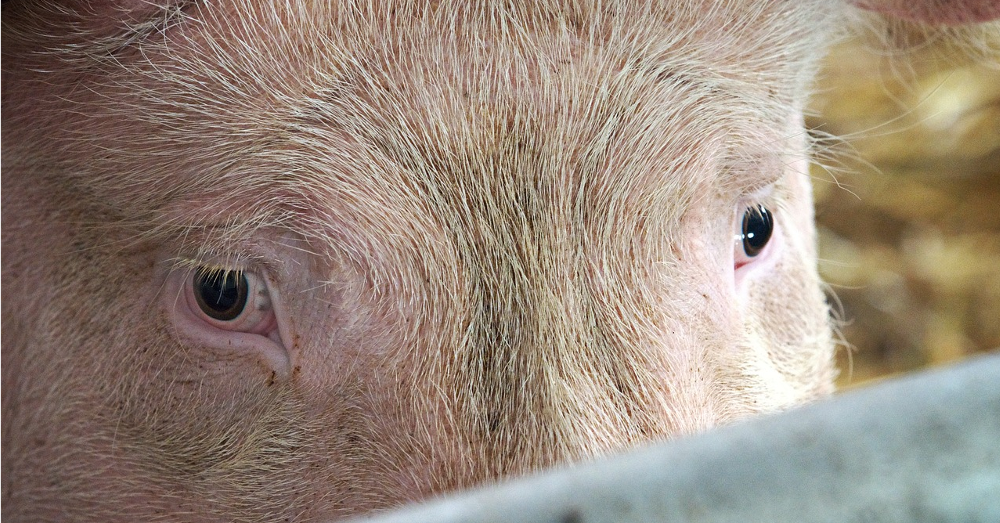Cheap Bacon and Bigger Barns Turn Iowa Inside out
"The family farm is gone," Chris Petersen says tapping his kitchen table with gnarled workingman's hands, the fingernail on his index finger busted and purple. "And someone needs to know about it."
November 13, 2017 | Source: Environmental Health News | by Brian Bienkowski
Big Ag moves into rural communities and upends the social and economic balance.
CLEAR LAKE, Iowa—Chris Petersen has raised two children, thousands of hogs, a couple of rambunctious terriers and hell.
Lots of hell.
“The family farm is gone,” he says tapping his kitchen table with gnarled workingman’s hands, the fingernail on his index finger busted and purple. “And someone needs to know about it.”
He shows me a local newspaper with an above-the-fold photo of him rallying a crowd against a proposed mega-hog farm. “Top story of the year,” he says.
He speaks casually of driving presidential hopefuls around the state, offering reality. “We took John Kerry to a pile of dead hog stacked up on the side of the road, you know what he asked? ‘Why are they all dying?’ That’s when he got it,” Petersen says.
The “it”? A way of life that has industrialized over the past 30 years, undergoing a massive makeover. Hog raising has become faster, more efficient, more lucrative. Demand for pork is soaring worldwide: per capita consumption has shot up 7 pounds over the past 30 years.
To keep up, farmers raise hogs predominantly inside massive confinement barns and work for the handful of large corporations that dominate the market.
These changes have brought well-publicized pollution concerns. In Iowa, pig manure is so pervasive in waterways that the state has declared 750 of them impaired. And in North Carolina this year, researchers found pig poop bacteria on the homes of 14 out of 17 farm neighbors they tested.
But the most profound impact? Big Ag has upended rural communities, taking the fruits—meat and produce—from America’s breadbasket and leaving a host of social, economic and environmental injustices behind: Plummeting home values, pressure that drives small farmers into tight contracts or out of business, shrinking populations and a diminished political voice in small rural towns.
For Petersen, preserving the rural farm life he loves now means regularly driving 40 miles in a night to attend a rally, butting heads with industry titans, visiting DC to buck the corporate farming trend. And dealing with the occasional death threat.
The 62-year farmer still raises a couple hundred black Berkshire hogs a year at his home off a dirt road here. He rocks back in his chair with Kirby, his terrier-greyhound mix, along his side. Petersen had the chair made four inches wider so Kirby could sit with him.
He shrugs off the death threats. “Somebody has to stand up,” he says, tugging on his “America 1776” hat.

